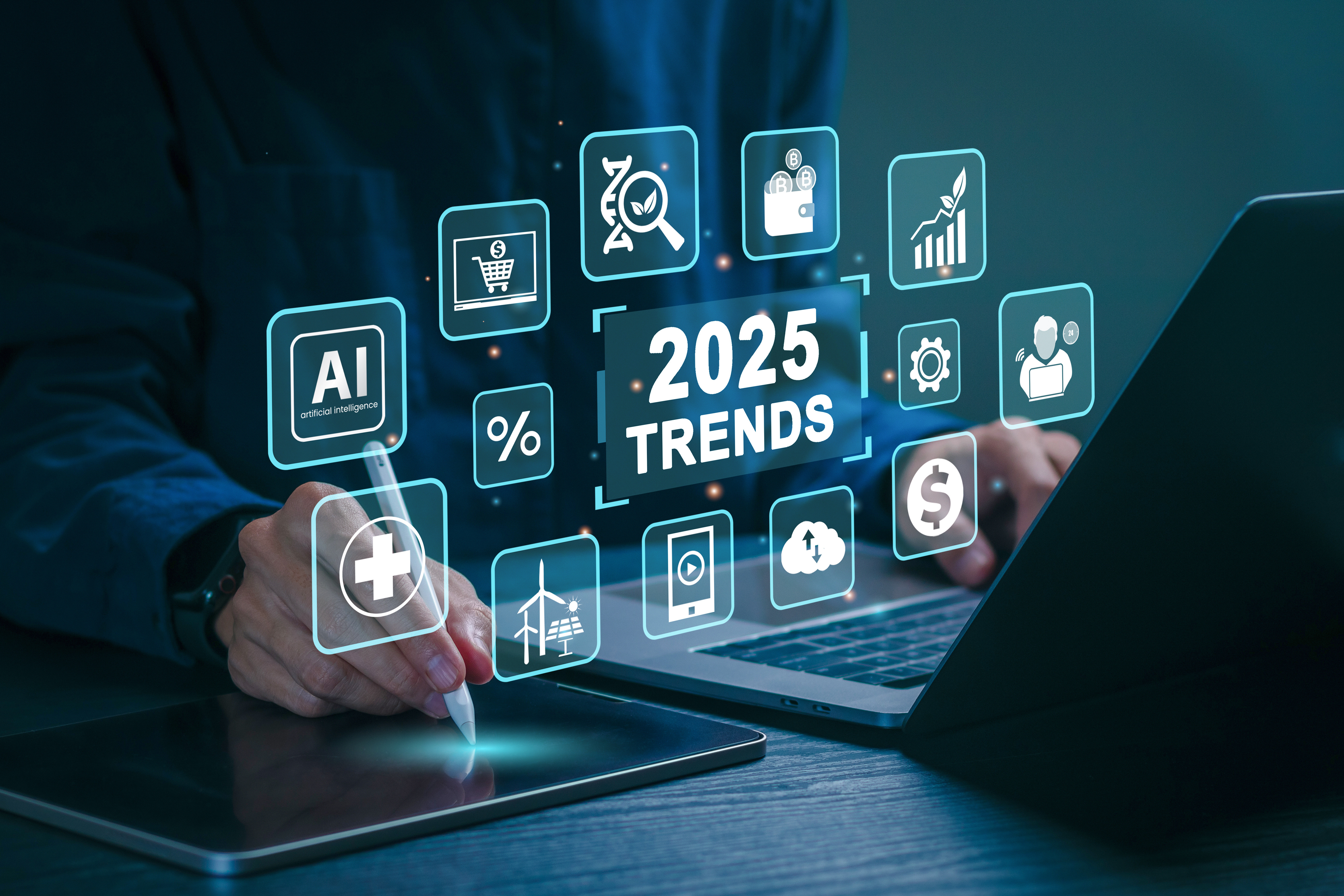As 2025 starts to take shape, hiring trends are coming into sharper focus. So far, we are seeing three trends that affect both employers and potential candidates, all featuring artificial intelligence as the underlying theme. Data is key in 2025.
TREND #1: INCREASING AI/DATA POSITIONS
AI and data-related positions top the lists of fastest-growing positions as companies across industries hope to leverage AI and data to optimize processes and make data-driven decisions, faster.
For example, Goldman Sachs recently started “rolling out a generative AI assistant to its bankers, traders and asset managers, the first stage in the evolution of a program that will eventually take on the traits of a seasoned Goldman employee.”
While not a new concept, data-driven decision-making, or DDDM, has changed significantly because businesses are now inundated with data. There is no way for humans to efficiently gather and analyze it all, let alone follow up. In fact, let’s look at the six steps to DDDM:
- Define objectives
- Identify and collect data
- Organize and explore data
- Perform data analysis
- Draw conclusions
- Implement and evaluate
It’s clear that AI could support companies at every step, but the only way to get AI on your team is to hire humans with AI and data skills and experience.
Companies are still assessing how and when to best use AI
AI is slowly “eye-dropping” into business decision-making and operations as managers and leadership try to figure out where to start. Companies that have been holding back the last year or two are anxious to get busy with new initiatives, but which projects will deliver the most value soonest?
No company is turning whole departments over to AI just yet, but every department is considering how AI might help optimize data to boost product development, marketing, accounts payable, patient care, or customer service. If interest rates continue to go down, 2025 may bring more movement, resulting in more money released for projects – if companies can attract skilled talent, specifically in the following positions:
- Computer and information research scientists
- Data scientists
- Software developers
- Data Engineers
- Data Architects
TREND #2: EMPHASIS ON SKILLS-BASED HIRING
AI and generative AI technologies “have to be developed and implemented by workers with specific skillsets and they have to be used by workers who are familiar with them,” notes the Federal Reserve Bank of Atlanta. Demand is shifting from ML-related skills to AI-related skills. And the need is spreading across industries and occupations.
“By 2024,” they point out, “nearly a quarter of all occupations had some minimal demand for AI skills.” As a result, “technological skills are projected to grow in importance more rapidly than any other skills in the next five years.” AI and big data require:
- Programming
- Math and statistics
- Machine learning algorithms
- Deep learning frameworks
- Data management
- Soft skills in problem-solving, communication, and collaboration
We often talk about the importance of hiring the person, not a resume. However, in the case of AI and data science, companies now value demonstrable skills and experience over academic background.
Which skills are most desirable depends on how the company wants to use AI. Talented specialists are needed to help assess and decide how to use AI, and to help build models to enhance operational efficiencies.
Trend #3: CANDIDATE COMPETITION WILL REMAIN FIERCE
Even as the market continues to heat up in certain areas, there are still more candidates than jobs. Those with specific AI/data skills and experience will remain in highest demand. All candidates must find ways to remain competitive and stand out from others, to capture new opportunities as they open up.
Now that the market is more employer-driven, companies are facilitating more collaborative onsite projects by having workers return to the office. Not everyone is delighted by this, and those with strong AI skills may have a greater advantage in retaining (or landing) a remote or hybrid position. Companies may be more willing to make exceptions if they can’t find the AI skills, they need close at hand.
This issue may also affect talent recruiting strategy, depending on the employer’s geographic location.
Aside from willingness to implement return-to-office policies, companies may need to consider cross-industry application of skills to build out project teams. AI skills may be transferrable from one industry to another, although companies often prefer direct experience because candidates are familiar with industry-specific nuances and requirements.
the bottom line
AI and data openings are rising in response to business priorities and plans to leverage data to make better-informed decisions. Because the AI field is still evolving and growing, the specific skills most in demand will continue to shift as well.
